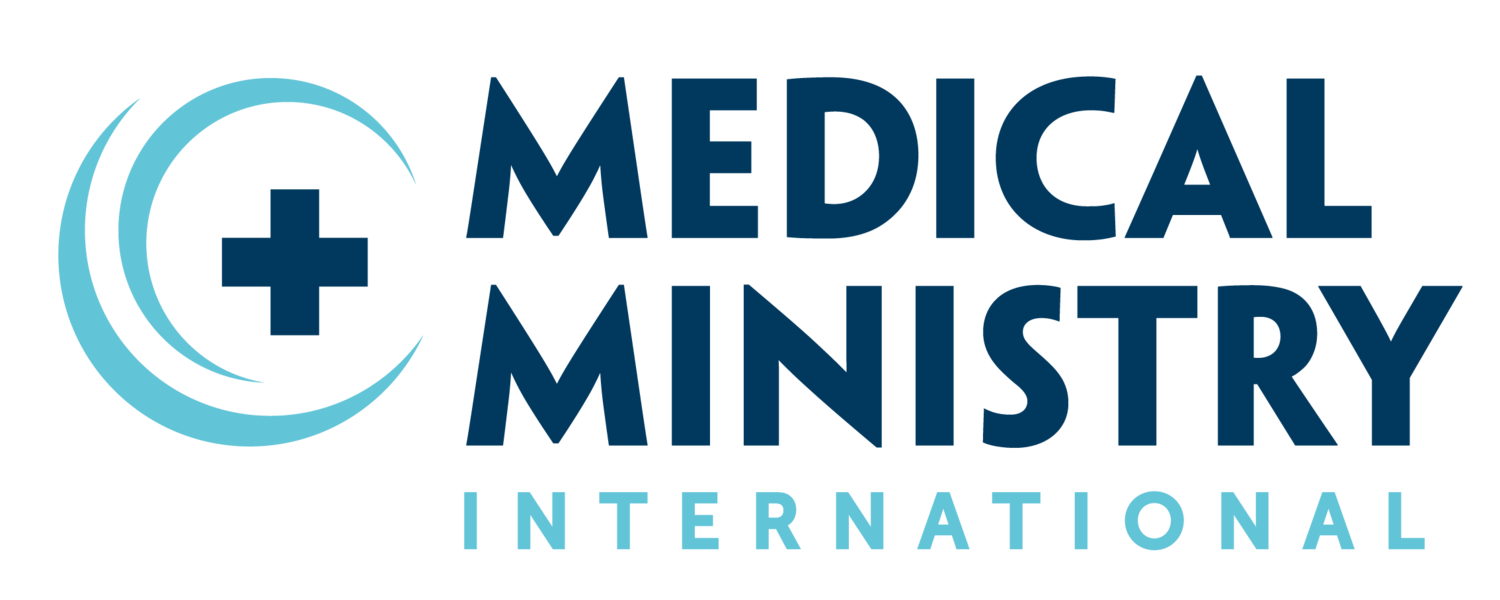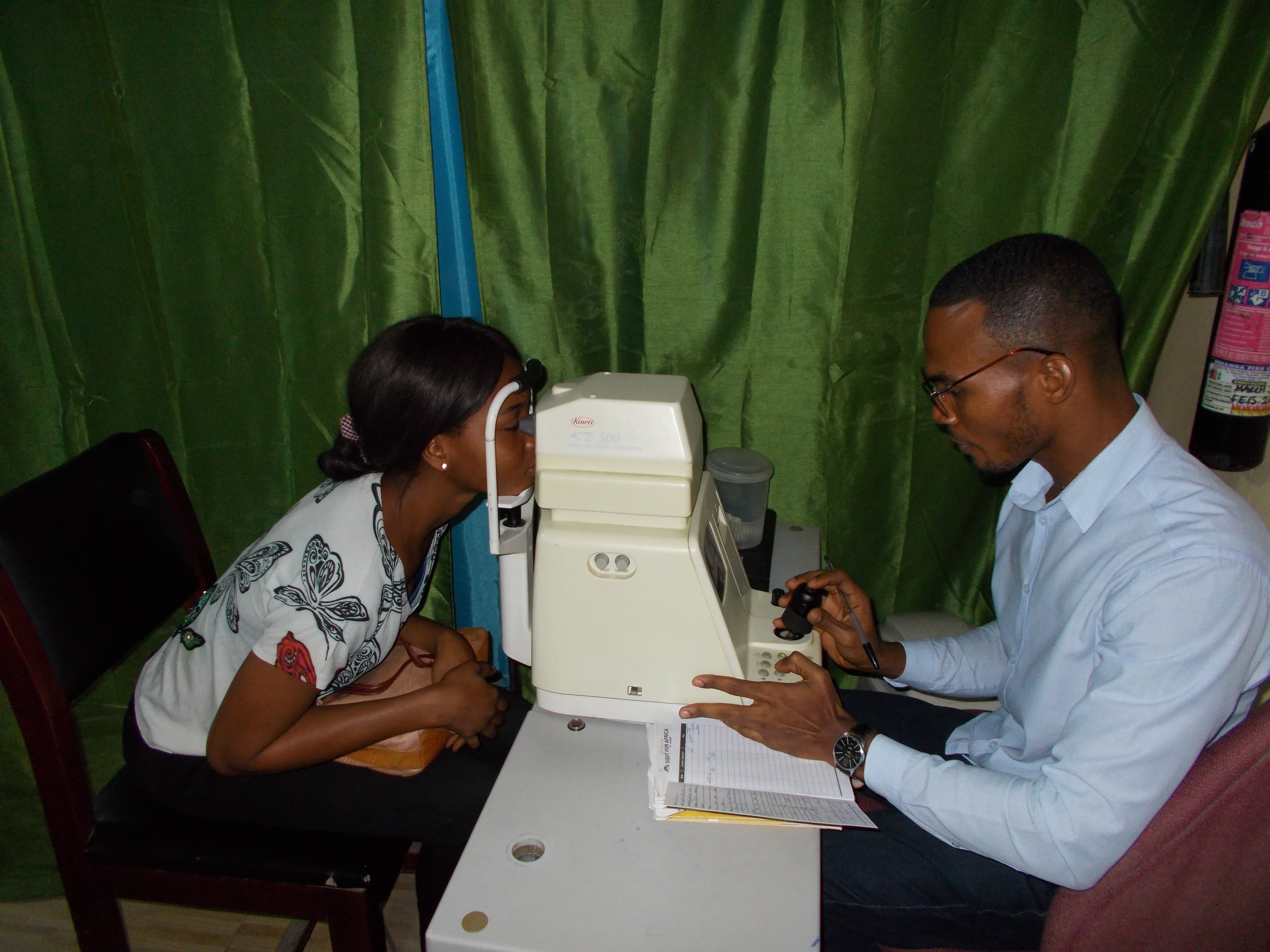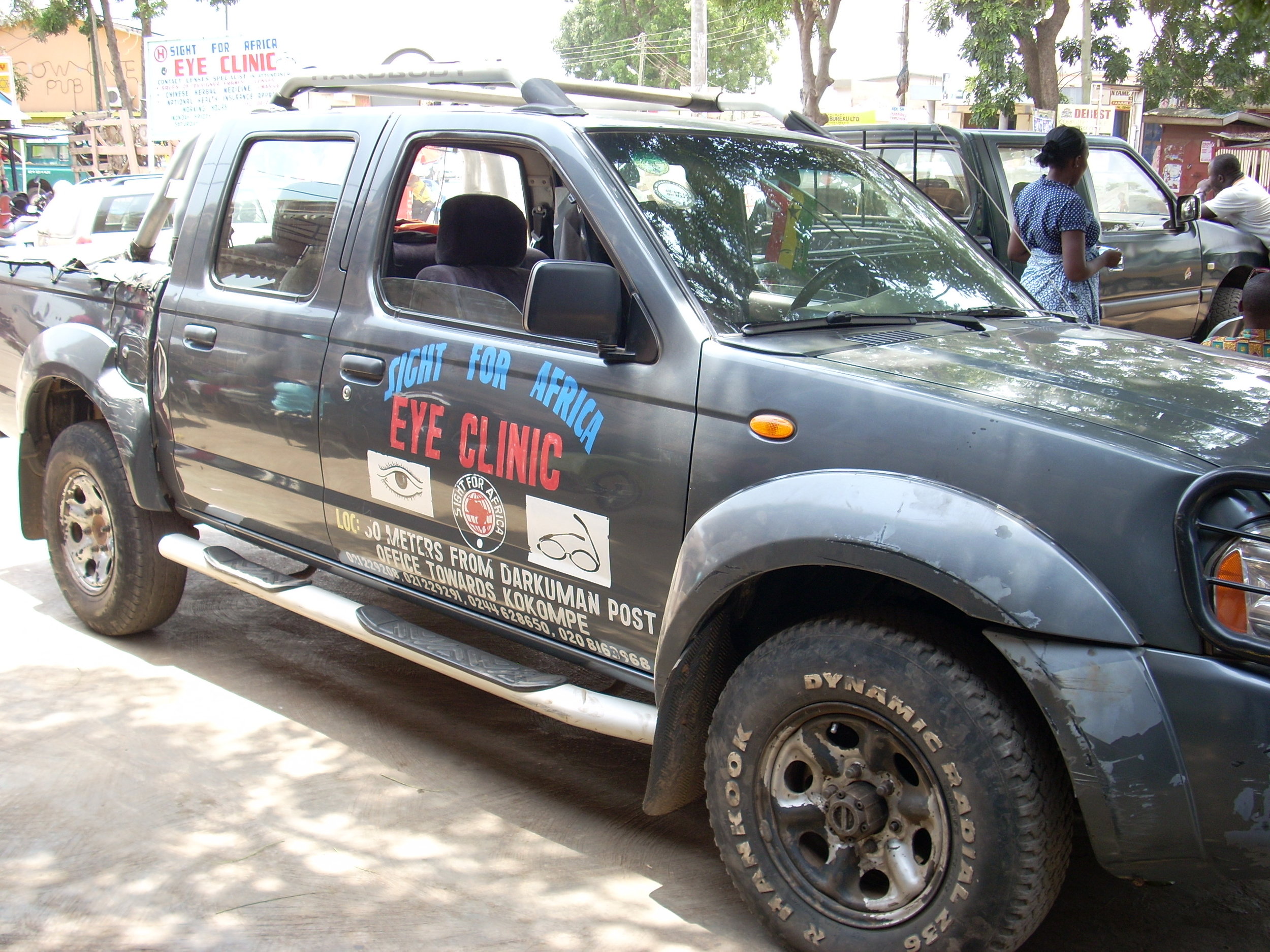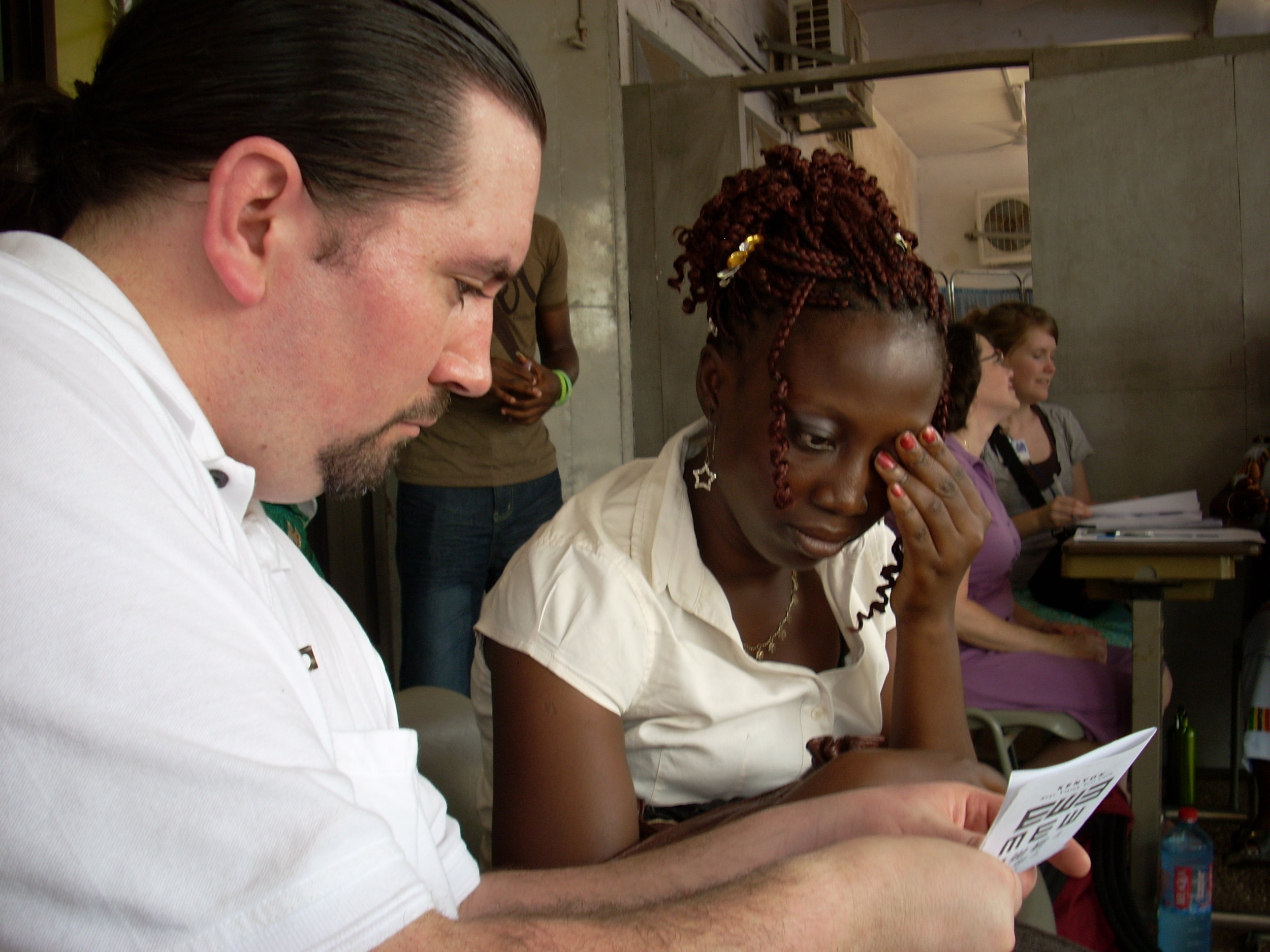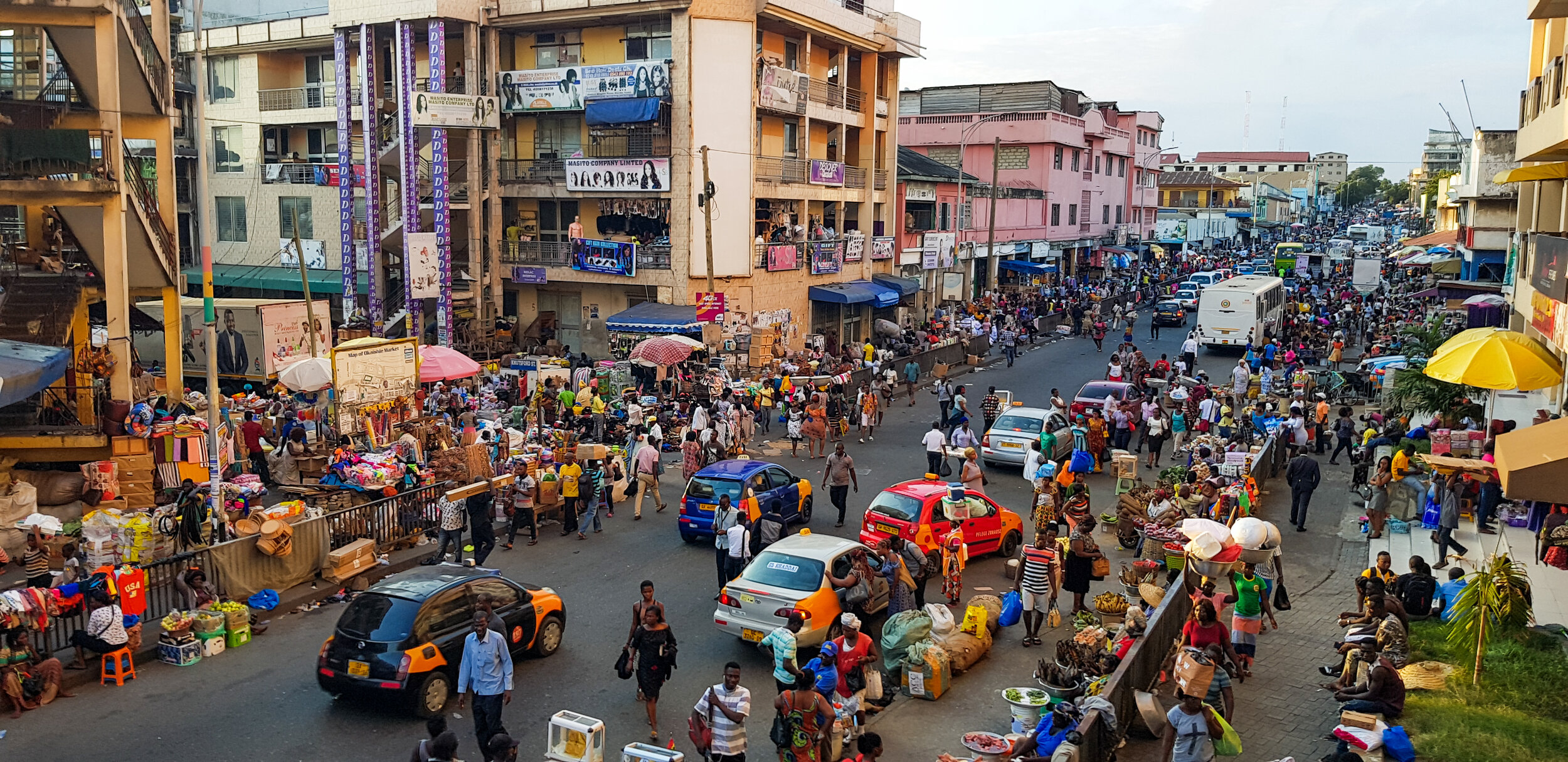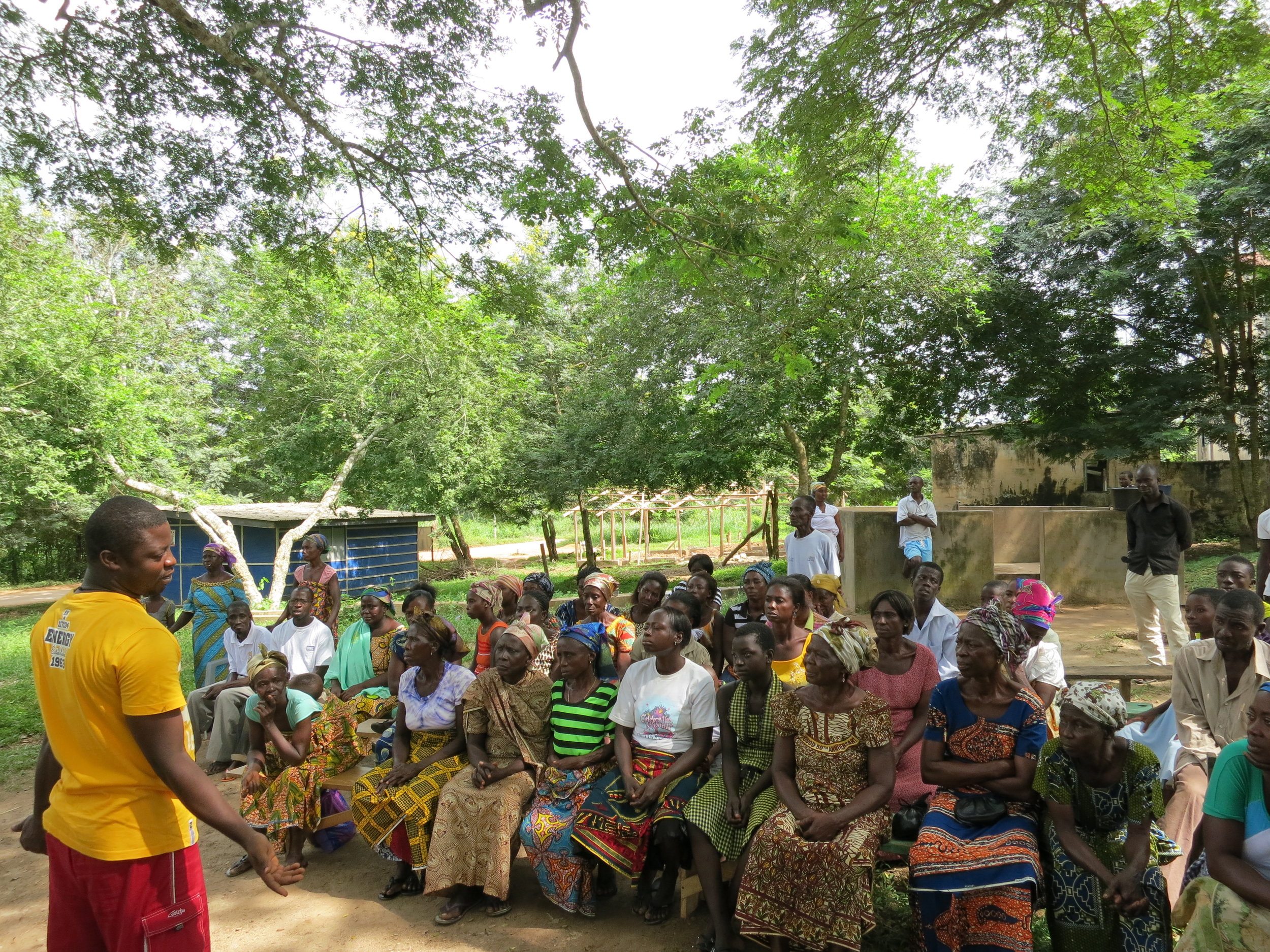Medical Ministry International in Ghana
Sight for Africa
Sight for Africa began in 2003 with the sole aim of providing eye care services to avoid preventable blindness for those who are vulnerable and in need.
In 2004, Medical Ministry International began to support the efforts of Dr. Kofi & Vivian Ghartey and Sight for Africa. Kofi Ghartey, an optician living in Canada for 30 years, returned to his native country Ghana with a vision to serve his people. A full eye clinic was developed in Accra, Ghana’s capital, and it is now an MMI Partner Health Center. Medical Ministry International ships needed equipment and supplies to support Sight for Africa.
Seth Ephraim Tetteh-Quaye, MMI Ghana
Seth Ephraim Tetteh-Quaye (MBA) is a positive, motivated, team player who is an accountant by profession and practicing internal auditing. He is currently the Country Director and Project Director for Medical Ministry International Ghana.
He holds an MBA in Finance, BBA in Banking and Finance, a Total Management training certificate; Six Sigma, Project Finance and Project Management, Supply Chain Management certificate from the Methodist University College Ghana and International Management Institute India, Delhi (Asia).
Seth first participated on a Medical Ministry International Vision Care Project in 2006 as a volunteer on a project team in Ghana. At the time, Seth was a staff member for Sight for Africa, where he has worked as the International Outreach Coordinator of the Eye Clinic.
Seth’s strong relationships with partnering hospitals in Ghana are instrumental for successful OBGYN and General Surgery Projects. These hospitals include Barnor Hospital, Salvation Army Urban Aid Hospital, and Coast for Christ Hospital in Winneba. At the Salvation Army Urban Aid Hospital, Seth also monitors the internal controls and supports financial planning. He also collaborates with the Christ Is the Answer Church which has over 15 Branches throughout Ghana for Local Mobile Clinics.
Seth plans to operate over nine Projects a year, with assistance from Esther Naadu Nunoo. These Projects include Mobile Clinics both locally and internationally, along with Primary, Vision, and Surgical Care Projects.
Vision Care
In Ghana, the major causes of avoidable blindness are cataracts, glaucoma, trachoma, childhood blindness, and refractive errors.
The objective of the Vision Care Program is to address these issues. Teams perform cataract surgery, provide optometry care, conduct screenings, and educate patients on independence without their sight.
Outreach programs took place within the Asante Akim North district; the focus of the team was to treat the majority – especially the aged – who are generally blinded by cataracts.
Primary & Surgical Care
Medical Ministry International has led projects in Breman Asikuma, located in the north-eastern part of the Central Region of Ghana, a two-and-a-half hour drive from Accra. The population of Brema Asikuma is about 12,391 people, majority of which are Indigenous. Most people in the area are farmers, while a small portion are government workers who serve as teachers and civil servants. There are also a few migrant farmers and workers.
The project team focuses their efforts throughout eight villages. Many patients are women and children with malaria, high blood pressure, diabetes, typhoid, preventative blindness, and skin diseases. Surgeries include abdominal, gynecology, breast, obstetrics, plastic and urology.
Integrated Health with Elizabeth Seunarine
Project Sites:
ODORKOR OWUSU KOFI STREET (ACCRA) - SIGHT FOR AFRICA EYE CLINIC
LARTEBIOKORSHIE (ACCRA) - BARNOR HOSPITAL
MAMOBI (ACCRA) - SALVATION ARMY URBAN AID HOSPITAL
WINNEBA (CENTRAL REGION) - COAST FOR CHRIST HOSPITAL
Travelling on a Project
About Ghana
COUNTRY BACKGROUND
Ghana, officially the Republic of Ghana in West Africa, is a unitary constitutional democracy led by a president who is both head of state and head of government. Since 1993, Ghana has maintained one of the freest and most stable governments on the continent. It abuts the Gulf of Guinea and the Atlantic Ocean to the south, sharing borders with Ivory Coast in the west and Burkina Faso in the north, and Togo in the east. It is only a few degrees north of the equator, giving it a hot climate.
With nearly 31 million inhabitants (according to the 2022 census), Ghana is the second most populous country in west Africa, after Nigeria. The capital and largest city is Accra; other major cities are Kumasi, Tamale, and Sekondi-Takoradi. Ghana is a multi-ethnic country with a diverse population, and a range of linguistic and religious groups; while the Akan, Moshi-Dagbani, Ewe, and Ga are the largest ethnic groups, they constitute only a plurality. The Akan being one of largest tribes in Ghana trace their lineage through the mother and maternal ancestors. The Ga language, Dagomba language, Akan language and the Ewe language are the most widely spoken local languages in Ghana. English language is the official language used widely in the country.
Ghana is described as a conservative and deeply religious country; most Ghanaians are Christians (71.3%), almost a fifth are Muslims, a tenth practice traditional faiths or report no religion . Although modern attitudes prevail, respect is shown for traditional values and morals. The Ghanaian culture is characterized by a bustle and vibe of social gatherings, which is always colorful and often musical. The celebration of festivals is an essential part of life, whether for childbirth, rites of passage, puberty, marriage, or death.
Ghana is an average natural resource enriched country possessing industrial minerals, hydrocarbons and precious metals. It is known across the globe for its gold production and for its production of cocoa, timber, bauxite, petroleum and natural gas. Ghana heavily depends on agriculture which contributes to 54% of Ghana’s GDP and provides employment for 52% of the labor force.
Ghana covers an area of 238,535km2 (92,099 sq mi) and has an Atlantic coastline that stretches 560 kilometers (350 miles) on the Gulf of Guinea to its south. It lies between latitudes 4⁰45N and 11⁰N, and longitudes 1⁰E and 3⁰15W. The prime meridian passes through Ghana, specifically through Tema. Ghana is geographically closer to the “center” of the Earth than any other country, since the notional center, (0⁰, 0⁰) is located in the Atlantic Ocean approximately 614km (382 mi) off the south-east coast of Ghana.
LOCATION:
Western Africa, bordering the Gulf of Guinea, between Cote d'Ivoire and Togo
GEOGRAPHIC COORDINATES:
8 00 N, 2 00 W
MAP REFERENCES:
Africa
TOTAL AREA:
238,535 km²
BORDER COUNTRIES:
Burkina Faso, Cote d'Ivoire, Togo
COASTLINE:
539 km
MARITIME CLAIMS:
12 nautical miles
CLIMATE:
Tropical; warm and comparatively dry along southeast coast; hot and humid in southwest; hot and dry in north
TERRAIN:
Mostly low plains with dissected plateau in south-central area
ELEVATION EXTREMES
LOWEST POINT:
Atlantic Ocean - 0 m
HIGHEST POINT:
Mount Afadjato - 885 m
